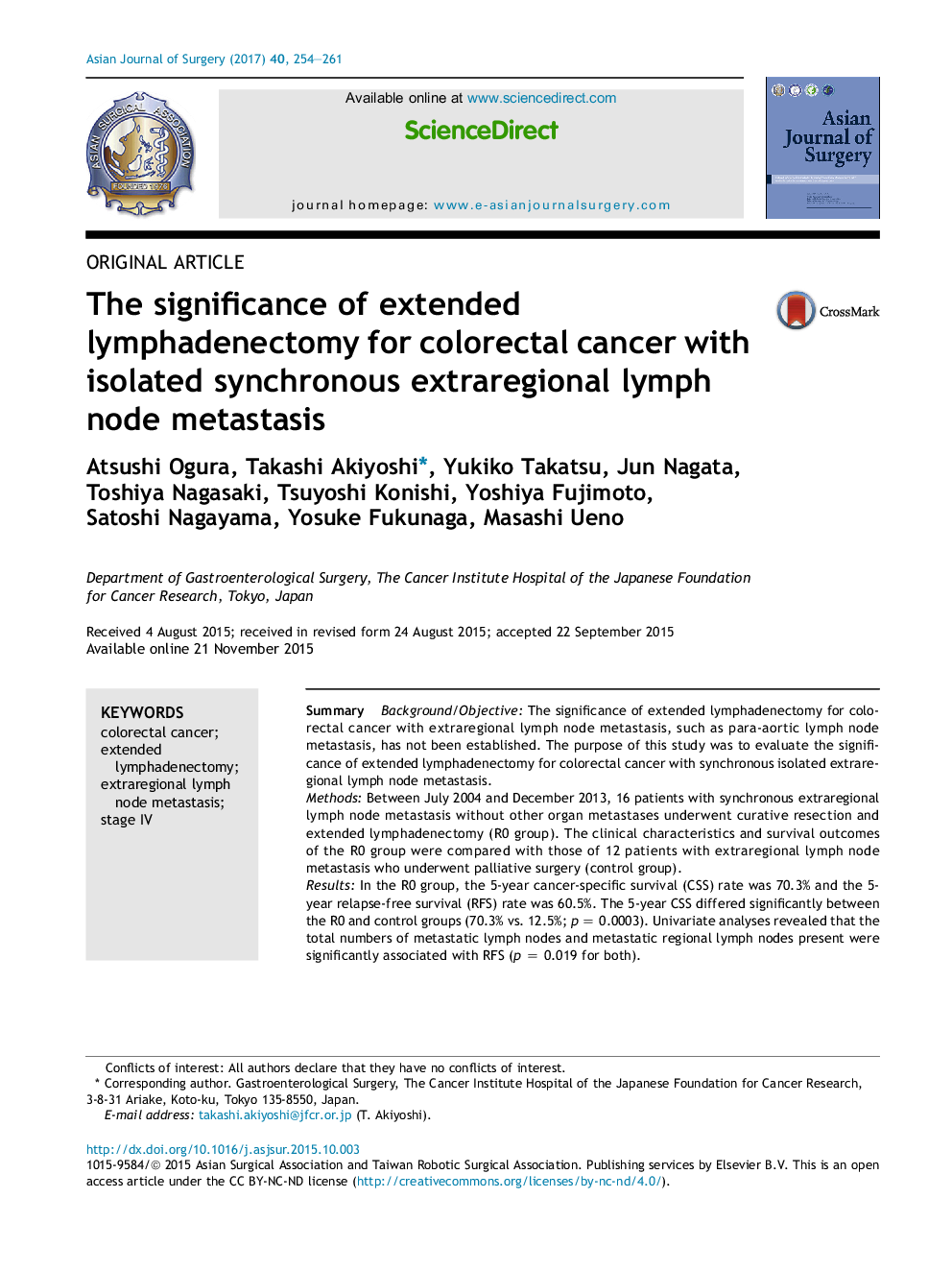| Article ID | Journal | Published Year | Pages | File Type |
|---|---|---|---|---|
| 5731516 | Asian Journal of Surgery | 2017 | 8 Pages |
SummaryBackground/ObjectiveThe significance of extended lymphadenectomy for colorectal cancer with extraregional lymph node metastasis, such as para-aortic lymph node metastasis, has not been established. The purpose of this study was to evaluate the significance of extended lymphadenectomy for colorectal cancer with synchronous isolated extraregional lymph node metastasis.MethodsBetween July 2004 and December 2013, 16 patients with synchronous extraregional lymph node metastasis without other organ metastases underwent curative resection and extended lymphadenectomy (R0 group). The clinical characteristics and survival outcomes of the R0 group were compared with those of 12 patients with extraregional lymph node metastasis who underwent palliative surgery (control group).ResultsIn the R0 group, the 5-year cancer-specific survival (CSS) rate was 70.3% and the 5-year relapse-free survival (RFS) rate was 60.5%. The 5-year CSS differed significantly between the R0 and control groups (70.3% vs. 12.5%; p = 0.0003). Univariate analyses revealed that the total numbers of metastatic lymph nodes and metastatic regional lymph nodes present were significantly associated with RFS (p = 0.019 for both).ConclusionFindings from our study suggest that extended lymphadenectomy for colorectal cancer with synchronous isolated extraregional lymph node metastasis might be effective in carefully selected patients.
